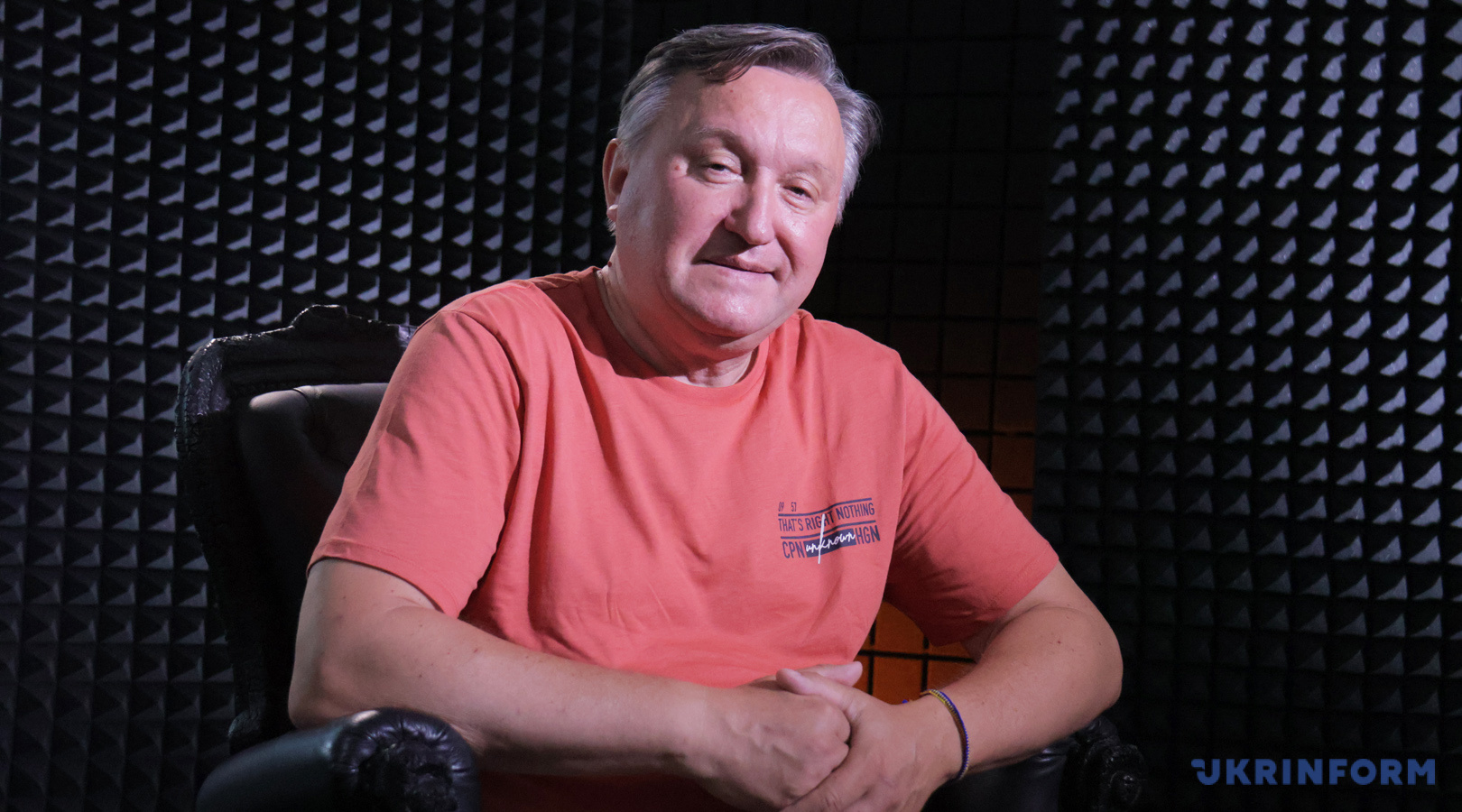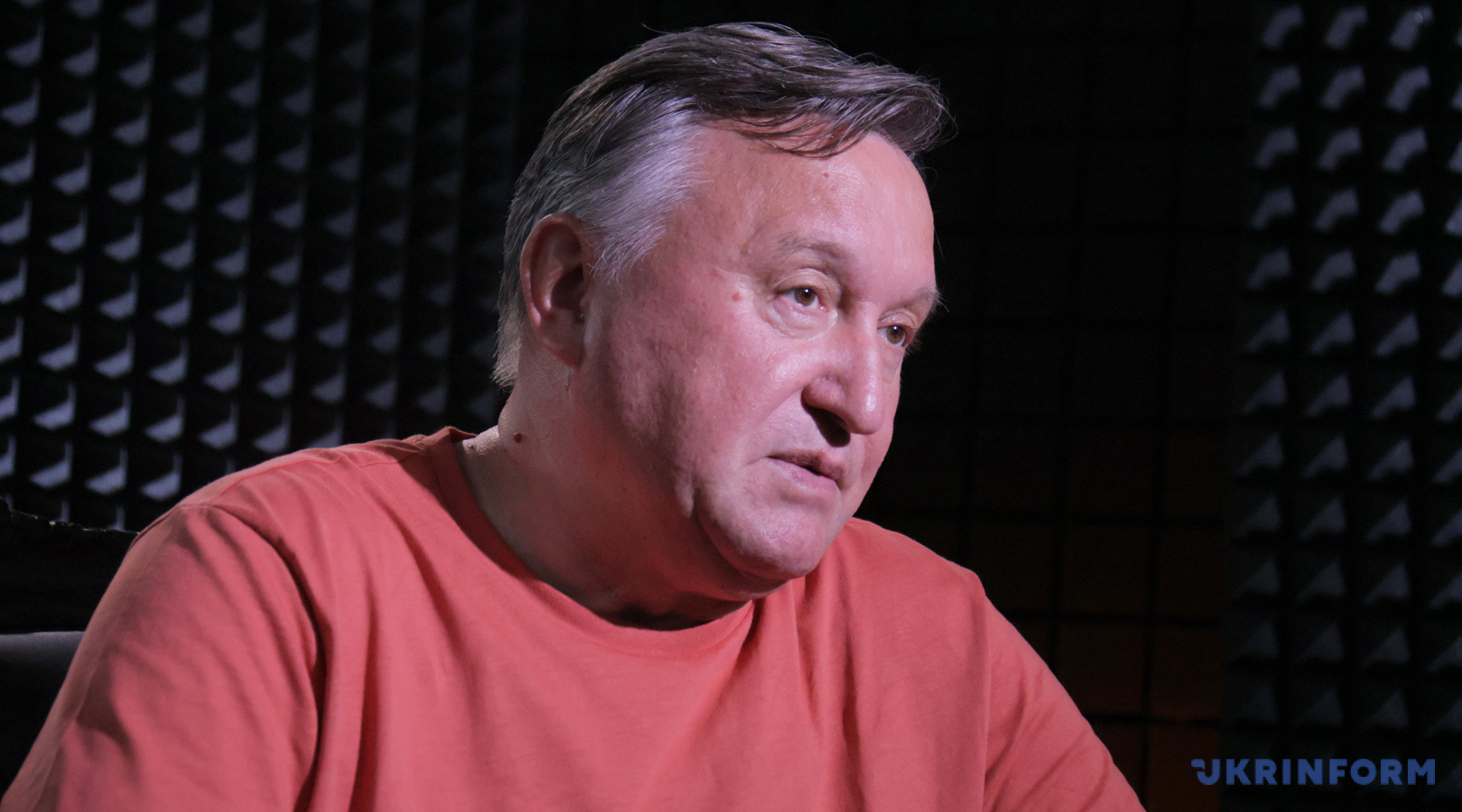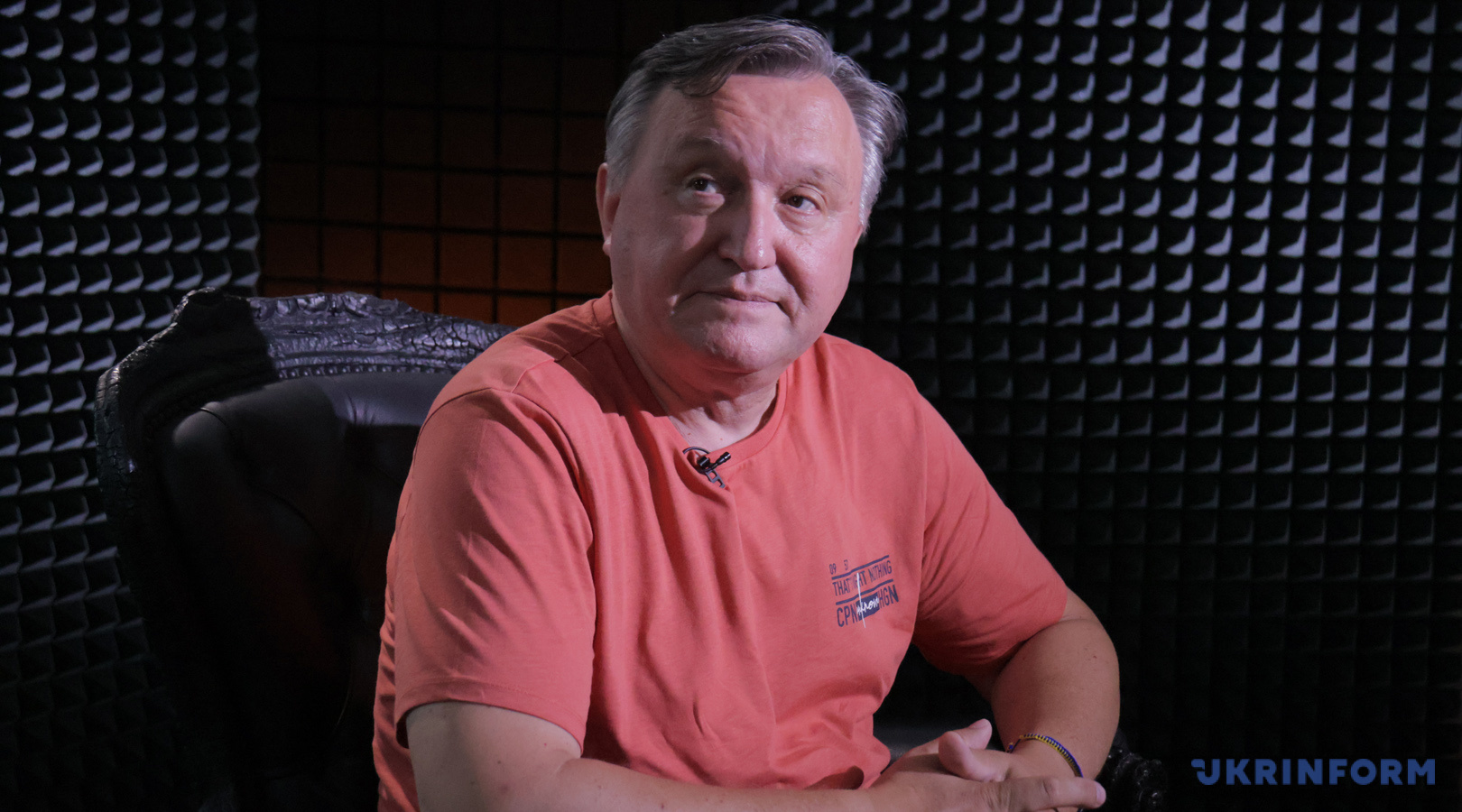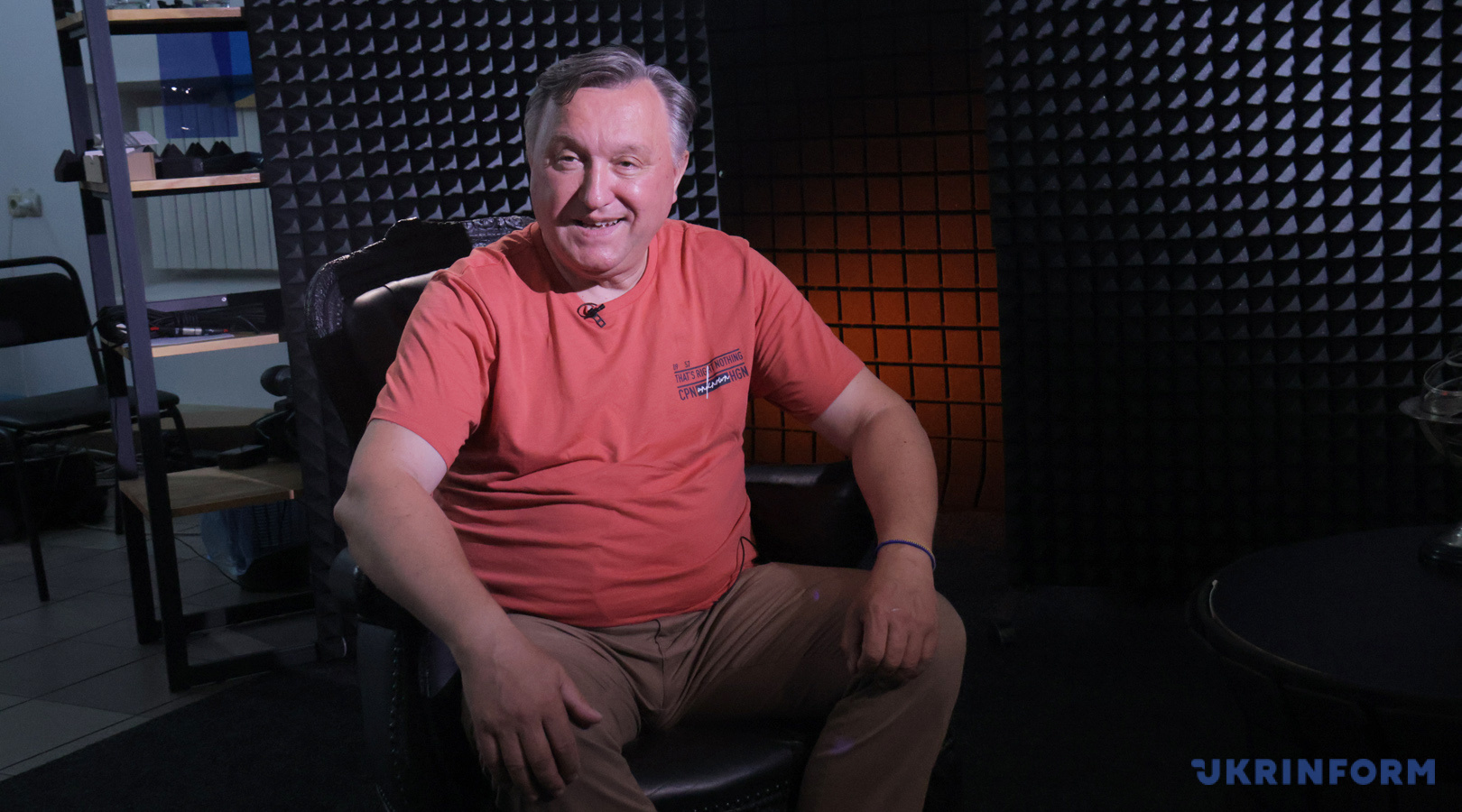The jubilee NATO summit, which this year was hosted by Washington, has passed. The 75th Anniversary summit deserves special attention while provoking thoughts and questions. The NATO summit gave answers to some of these questions, but others remain unanswered.
What has Ukraine got from the summit in Washington? What policy does NATO pursue in a situation where the principles on which world order is based have been infringed? What response can NATO offer to the challenges that have been undermining the long-term sustainability of the international law system for the third year now? What to expect next? Ukrinform spoke to Serhii Dzherzh, head of the Ukraine-NATO Public League, PhD (politics) to try finding answers to these and other questions.
- Joe Biden, the President of the United States of America, said the following: "Today NATO is stonger than ever. It's good that we're stronger than ever, because this moment in history calls for our collective strength." I, to be honest, does not see that "today NATO is stronger than ever". NATO has become bigger, indeed. It came together for the first time as an alliance of 32 Member States, with Sweden as a new, fully-fledged member. Do you think NATO meets the challenges of today?
- There are objective criteria, quantitative as well as qualitative. A billion people live in NATO countries. These are 32 countries; the Alliance has tripled in size since foundation. As a matter of fact, NATO countries generate over 50 percent of global GDP. In total, all NATO countries collectively spend more than a trillion dollars on defense. These are huge numbers, huge power, economic and military. It’s another matter how it is managed, how politicians carry out their work. Actually, in a democracy, the best form of government, as well as in the principles of NATO, where all decisions are to be made by consensus and not by majority, there are certain elements that may inhibit decisive responses by NATO or impede a prompt analysis of the situation being faced. We would like to see more radical actions, more explicit wordings, more amount of support for Ukraine and stronger NATO’s counteraction to the Russian Federation, which currently poses a tangible threat to European and global security.
- It think that that Ukraine and the issues arising in connection with countering Russia’s war of aggression are the biggest challenges of the 21st century. Therefore, some sort of evolution is expectable. After all, we are hearing again from the Kremlin’s dictator that there are prerequisites for peace: firstly, Ukraine must give up territories, and secondly, Ukraine is guaranteed never to join NATO.
NATO should have responded to this. The final declaration of the Washington Summit again contains a provision saying that NATO's door remains open. This provision is enshrined in the Washington Treaty’s Article 10, and repeated time and time again. Furthermore, Allies agreed at the 2008 Bucharest Summit in response to Ukraine's aspirations for NATO membership, that Ukraine will become a member of NATO. We expected a lot from [NATO] Vilnius [summit]. Less was expected from [the summit in] Washington, because there were clear signals coming: Ukraine will not receive an invitation at this stage in time, this year. At the same time, NATO's position was such (and Secretary General Stoltenberg spoke a lot about it) that the 75th anniversary summit provides an opportunity to do the maximum possible, take the biggest step towards Ukraine. As a result, there appeared a "bridge" for Ukraine to join NATO. Do you think this will accelerate our movement towards membership in the Alliance?

- It will definitely speed it up. But the hopes were precisely about the membership. Because we have become close with NATO over all these years of cooperation, starting with the presidency of [Leonid] Kravchuk when the then Secretary General Manfred Woerner visited Kyiv for the first time, opened Ukraine for NATO and NATO for Ukraine. We have the Charter on a Distinctive Partnership, we are part of the "Partnership for Peace" program, we have a program of enhanced opportunities, and, after Vilnius, there is the NATO-Ukraine Council. Ukraine is not just NATO’s partner, but strategic partner. It seemed that the next step would be membership proper, especially when all the windows and doors were open for us.
This is not the case, but in the NATO Washington Summit declaration I still saw a response to Putin’s statements. It contains a mention about the irreversibility of Ukraine's path to NATO membership. This seems to be the compromise solution found within the Alliance, because they cannot make a decision on accession as some members are opposing it. But at the same time, everyone comprehends that Putin cannot guide NATO, international organizations, the whole world what to do and what not to do. Because countries have their independence, sovereignty, rights, and international organizations are based on international law. I see it to be the response to Putin: never will this be so. And it can be assumed that any talks or a dialogue with Putin or whoever may succeed him will not include the issue of NATO. In other words, that issue will be off limit to discussions that may potentially take place between Ukraine and Russia in the future.
- If you ask me, the Russian dictator does not want to heed to or understand anything. We have seen this since December 2021, when he sent a draft security agreement between Russia and the United States, and another similar draft agreement between Russia and NATO. By this outrageously audacious ultimatum, to which obviously no response was expected, Putin wanted NATO to return to the situation of 1994. The Great War has continued into the third year now, and Putin again is saying they are ready to talk about peace, but Ukraine must be non-aligned and never join NATO. Moreover, when President Zelensky said the next peace summit could take place with the Russian Federation at the table, they immediately rejected it. It is of no interest or importance to them. For them it is important that they dominate, continue killing civilians, destroying Ukraine. What can and should NATO do in this regard?
- Only a militant-military response, suport for Ukraine, building up own capabilities. Whilst at Washington we didn't get sufficient political support we hoped for, then there should be something equally weighty put on the scales. And this “something weighty” is comprised of all the decisions made on support for the defense and security sector in our country. This is the doubling of the number of air defense systems, the establishment of an analysis, training and education center for the Ukrainian military; this a logistics center to be set up in Germany, employing about 700 people. Australia too will provide its military personnel to work in that center. Whilst Australia is not a member of NATO, it, too, will be helping Ukraine. If we analyze this all, given the assurances that F-16s are already flying to Ukraine and will boost our air defense capabilities and provide support for ground forces, it is what matters, along with the approval of EUR 40 billion in aid from NATO, albeit for one year only, and we would like this aid to be more systematic. Perhaps next year we again will have to battle for this support.
- Yes, this is all there is. There is a decision, there is clause 15 in the NATO Washington Summit declaration, there is a decision to set up a new security and training mission for Ukraine, there is a commitment to provide 40 billion euros in aid for Ukraine, and there is a decision to establish a joint center for analysis, training and education for Ukraine. That’s to say, there are specific steps being taken. And you mentioned new air defense systems, warplanes.
But airplanes, air defense systems, and even 40 billion euros do not have much in common with NATO as an organization, because these are essentially contributions from individual countries. Yes, they are members of NATO, but they are our bilateral partners who are helping us repel the invasion. And it is the partners who provide us with Patriots, the partners who bring the F-16 airplanes into Ukraine, it is the partners who will make these contributions. To be more precise, NATO’s role, if you carefully read the part about financial contributions, is limited to NATO collecting reports from countries twice a year on how much they have contributed to various funds in support of Ukraine. This includes military aid, training, logistical support, and even humanitarian aid, all in one package. And this 40 billion is the average annual amount of aid Ukraine has received since the start of invasion. To explain further, this is a continuation of support in the same amount and for the next year only. And then an analysis will be made, the capabilities of each country assessed, and appropriate decisions made. So, NATO and Allies: where is the difference between what partners can afford and what NATO cannot afford now and why?

- We will be satisfied with the support from NATO if and when we reclaim all our territories, regain sovereignty over the country, over people, territories. In other words, then we will say that everyone did their work well -- first and foremost, the Ukrainian military, and our partners as well. But there are several aspects in the fact that NATO is bothered with this bookkeeping work. As for individual countries, they largely depend on their respective legislatures and public sentiments. And every time they need to debate and decide whether or not to provide a larger amount or a smaller amount, this or that weapon. But NATO can set sort of different conditions. In one option, if countries help directly, Ukraine applies for this support. But where NATO takes over this function, it is going to speak a different language to its member countries. Because these countries committed to be in NATO, to implement the decisions made, and to contribute to the policy that NATO defines. Even Hungary, which, individually, would unlikely help Ukraine with weapons, is obliged to perform certain functions, because, being in NATO, it is more difficult to refuse to do so. This means that, when NATO gets it all systematized, it will be possible to avoid some political infleunces that can affect the decisions made by individual countries.
- This is reminiscent of the situation during Trump's presidency, where he had a tough attitude towards NATO members, demanding that countries spend on defense a minimum of 2 percent of their respective GDP. Today, the result is that 23 out of 32 NATO member states have achieved this minimum (and with the start of the all-out invasion this is no longer a minimum). So, it is still not that easy to speak one and the same language even within the Alliance. Furthermore, as far as is known, this 40 billion in funding for Ukraine should be denominated in relation to the percentage of the GDP of each member country. But this was not welcomed by everyone, and so it wasn’t included in the final declaration. Therefore, a lot depends on a specific situation and the state of affairs within the Alliance itself. There was a lot of talk going on both before and after the Summit that Washington had taken certain precautionary measures in the event Donald Trump is elected to a second term as President in November. Do you think so?
- To some extent, yes, because elections are held in other countries, as well. As for the declaration in general, Ukraine is mentioned 59 times, Russia 43 times in the context of threats and hostile actions, China, Iran -- currently the satellites of the Russian Federation -- two or three times. So I think that paying attention to Ukraine and actually discussing the Russo-Ukrainian war, this global threat at nearly every gathering is very important. Moreover, the conclusion of what is called Ukrainian contract "Ukraine Compact", "Security for Ukraine's Future" is extremely important, involving the countries that have signed bilateral security agreements with Ukraine. But it is also important to create a platform for these participants, including Ukraine, to forge shared positions within the framework of what they committed in these agreements. This is not like NATO, but a kind of mini-NATO, I would say, where this policy, this cooperation can be developed. And the fact that such a Ukrainian treaty has been created, is open to the entry of other countries is already a big step forward in support of our state.
- After Vilnius and before Washington, there were many discussions about the future membership or non-membership for Ukraine, whether or not there will be an invitation, in what form. This all was discussed on various platforms. And before the summit, an experts’ letter was published by Politico, claiming that the challenges posed by Russia can be tackled without bringing Ukraine into NATO. The experts believe that Ukraine's movement toward NATO membership could worsen the problem, turning Ukraine into a place of protracted confrontation between the world's two leading nuclear powers. This partially reflects the position of the Alliance itself and of the United States of America, and President Biden, and this is what is keeping NATO, especially two of its most influential members, the United States and Germany, from taking this step. Dozens of other experts, however, believe and continue to believe the opposite, arguing that only an invitation for Ukraine to join NATO will offer possibilities to make a point of it and solve the global security situation fundamentally, where no one is allowed, first, to violate the fundamental principles, second, to take away someone else's land, third, to forbid someone to do something to protect own security. Where is the truth there?
- I would say that if NATO countries, including Germany and the USA, are fearing that Ukraine's NATO membership will cause tension of some sort, then it is worth acting in some other ways, but still it is worth acting. It seems to me that the leaders of Europe and America have already come to understand that this is a real threat, with which something must be done, that it cannot be left like this for tomorrow, for next year, for next five years. Despite a war ongoing somewhere, Europe, North America and other parts of the world will continue living their happy lives.
It won't be the case, because it affects the whole world. We see some elements of food security (there was a real threat to people in Africa, Asia), other threats are emerging, especially as the Putin’s clique’s appetites are growing; they want to influence even more and more further, to rain in Western democracies. I therefore believe that the time has come for some more militant actions; this policy needs to be carried out in a different way from what is was ahead of the Second World War in Europe, when many countries were reluctant to go into dispute with Hitler, to stand up for the truth, for justice, but, on the contrary, chose to distance themselves from this, which eventually led to an all-out war in all of Europe. World War II took a toll of some 50 million lives. In order to prevent this from happening again, it is vital to act today, act immediately, employing all the means available, not only support for Ukraine, NATO membership or future NATO membership, but also other sorts of pressures on the Russian Federation so that it brings a result.

- This is what makes me believe that inviting Ukraine into NATO would not be so much a gesture in favor of Ukraine, not so much a recognition of the role Ukraine currently performs deterring the aggressor and protecting Europe and NATO from a potential war of aggression. This meets the best interests of NATO itself, and until NATO leaders realize this, they will not take this step. I agree that the current situation is in some ways reminiscent of what preceded the Second World War. The country leaders in Europe and NATO, unfortunately, still live with those outdated concepts or, rather, the willingness to continue living a life as it was. Everything was clear, there was a cold war, there was a bloc division of the world. Now Russia has launched a war of aggression against Ukraine and continues fighting. For them this is a temporary situation, but for us, this is a huge disruption of the entire world order, and the time to build a new order came two years ago, not now.
It is important that a separate meeting of the North Atlantic Council with the leaders of the Indo-Pacific partner countries, four countries of the region, was held on the margins of the 75th anniversary summit. This is an important event not only because, for NATO, it is a follow-up to its policy of partnerships, but also because the countries of the Indo-Pacific region have undertaken certain commitments to support Ukraine. You mentioned Australia in particular. NATO Secretary General Stoltenberg and the Americans talked about plans to create several programs within the framework of the partnership between Ukraine and the Indo-Pacific states. What are your thoughts about it?
- I think it's a great idea for us to have our capabilities bolstered in all domains: military, economic, political. These are all democratic countries - Japan, South Korea, New Zealand, Australia. NATO has a program for far-away partners. That’s to say, there is a partnership, but there are far-away partners towards which NATO pursues such a policy. And we, being a strategic partner of NATO, a country that will be a member of NATO in the future, should also cooperate with the countries of the Indo-Pacific region as part of this joint Euro-Atlantic initiative. As Russia has a treaty with North Korea, why should we not sign a similar security agreement with South Korea, if it agrees so to do. The same is with New Zealand, another country that supports us, especially at the political level. Australia, which has powerful capabilities, disbursed 170 million dollars in support for Ukraine, having announced this at Washington. We have robust relations with Japan, enshrined in a relevant agreement. I suppose we can rely on support from those countries as well, and this is important for us. To some extent, this is a deterrence factor against China, who, perhaps, should think twice whether to continue flirting with Russia and playing along in this war by supplying Russia with components it needs for the armaments it manufactures.
- Yes, these are promising directions, especially as they address the domains of interest to Ukraine, such as artificial intelligence, cyber security, products that are needed now and will be developed.
In this context I would like to mention a statement made by President Zelensky about his expectations ahead of the Washington summit. He said that these expectations are twofold: military and political, with military ones put in first place. What’s your opinion about whether President Zelensky’s expectations came true?
- I think that they have come true in that we are on the right path in relations with our NATO partners. That’s for definite. The fact is that these declarations, no matter what is written in them, if we are holding the front line and defeating the aggressor in this war, it is more important for us to protect our sky, save the lives of people, civilians, children, women, do not allow the Russians to bombard our cities and villages. This as number-one challenge now. That is why, in my opinion, Zelensky appropriately put the military aspects of support in the first place. Political ones, albeit of great importance, are still projected into the long-term future. Everything depends on political decisions, but this is a one-direction battle. And if today we receive a wide ranging military support, enough weapons, ammunition, everything that our armed forces need, then we are holding on. And if we are holding on, then we will have time for diplomatic work, for discussions, in order to convince our partners into making political decisions regarding Ukraine that will be favorable for us.

- Political decisions are also made, and they are important. You called the Ukrainian agreement, Ukraine Compact a mini-NATO. I believe we could go further and think of it in terms of a prototype a future security architecture. This agreement came as prefect conclusion to the NATO summit in Washington. Indeed, this is a step forward and a look into the future, aimed at helping Ukraine not only counter the threat now, but also to defeat it, build up new armed forces, and also to ensure Ukraine's security in the event of a future potential attack by the aggressor country. Hopefully we'll see a lot more from this deal.
However, this all will come later. The summit declaration is also projected into the future, the Ukrainian agreement is projected into the future. Those commitments regarding new aid packages, air defense capabilities, even airplanes that are "already on the way to Ukraine", they are not here yet, they will be here someday. But the war is going on now, every day, the war does not wait for any events. A lot was done and promised at the summit in Washington. When are we going to feel it at the front line, when the Armed Forces of Ukraine are going to see that the summit ends not only with declarations, but with specific weapons and ammunition supplies that are needed here and now?
- Challenges are remaining at the front line. It is vital to have a robust home front. And everything said and done at the summit, I think, heralds the start of the actions that will continue, will provide a foundation for a robust home front. And more summit meetings will follow. One summit has passed, and we need to get prepared for the next one, to draw up new proposals, new ideas, but also to advance on everything we have achieved before, especially in terms of military and technical support, aid equipment. Because a properly equipped Ukrainian soldier means saved lives, fewer casualties, dead and wounded. This is obvious, so these things should be a priority for us, and we, the Ukrainian people, are very attentive of this.
- So, we are coming to the following conclusion: lots of decision were made at Washington, but the main thing is decided on the Ukrainian battlefield. And it is the Ukrainian solder, the Armed Forces of Ukraine who are the main foreign policy actors now.
Glory to Ukraine! We believe in victory and going towards the victory.
- Glory to the Ukrainian Armed Forces!
Interviewed by Ihor Dolgov
The full video of the interview is available here
Photo via Yevhen Kotenko, Ukrinform
